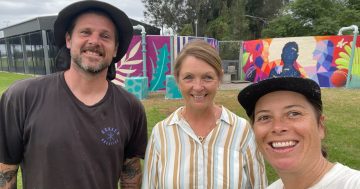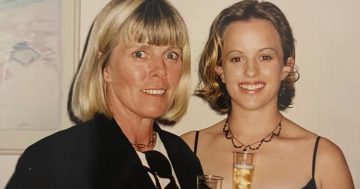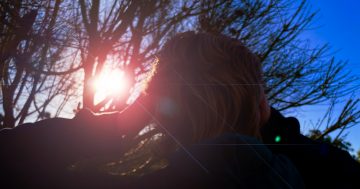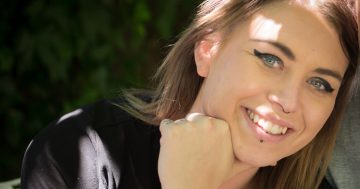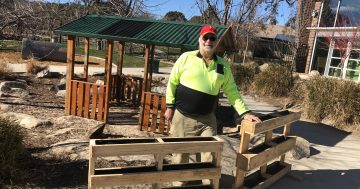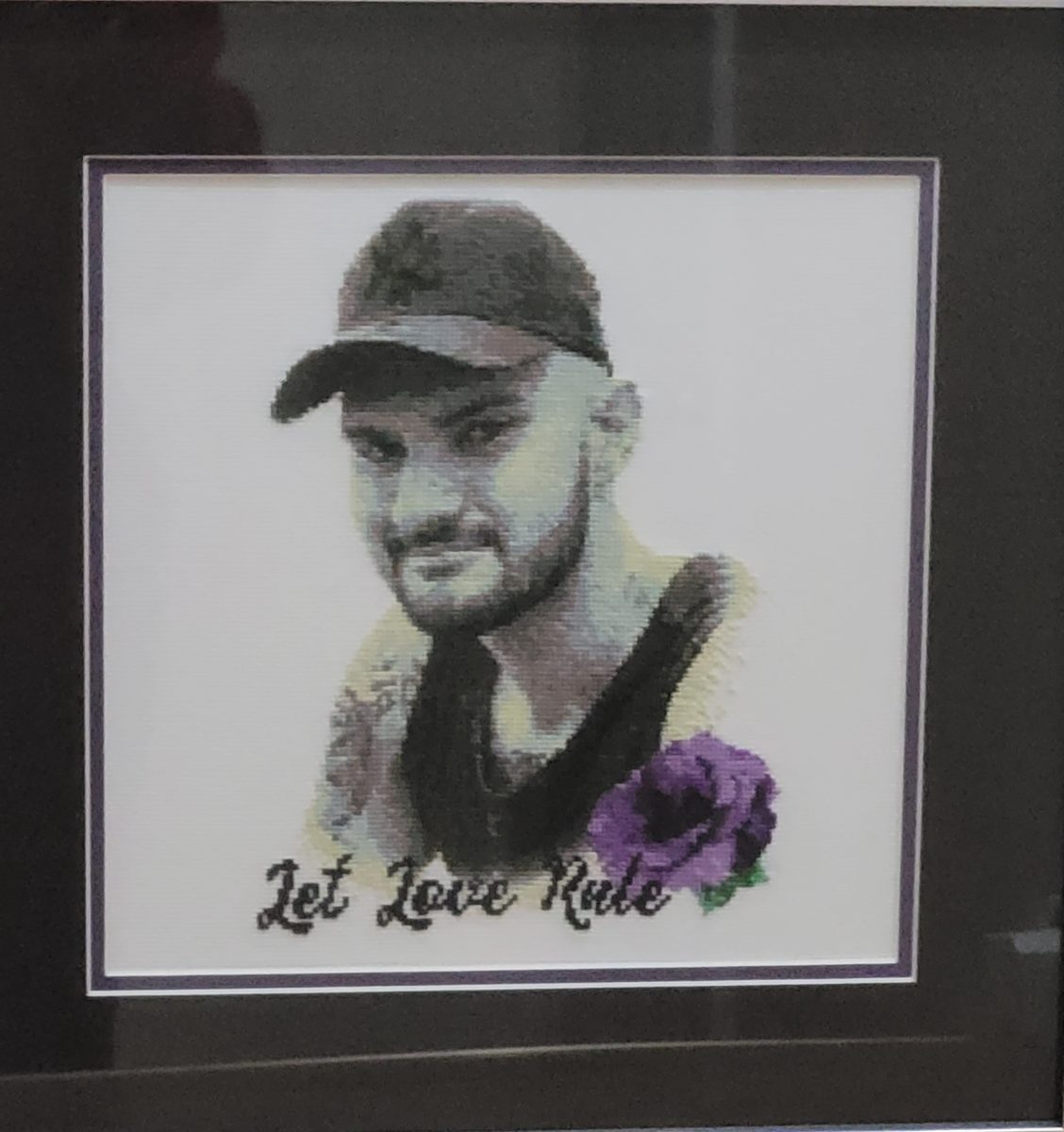
One of Kai’s sisters created this piece of cross-stitch for Jeanette on Mother’s Day featuring her brother’s image – and the title of one of his favourite songs. Photo: Supplied.
Kai was 21. He was loved by his mother, sisters, brothers and mates, had a good job and would do anything for anyone.
A few years earlier he had won a coveted sports part-scholarship to a leading Sydney private school and was on the radar of American basketball scouts. More than 600 people had applied for the electrician apprenticeship he secured – life was good.
Today the heart of his mother, Jeanette, is broken.
Her son is dead and she is left asking a million questions.
Not only does this Canberra mother now have to live with the loss of her son, but she is also struggling to find support systems in the city to help her and her family through the tragedy.
“People don’t want to know about you when it’s suicide,” she said. “They don’t know what to say. It’s like you’re made to feel ashamed.”
Police estimated Kai took his life at around 11:30 am on a Sunday. He was found in a car in a rural village just outside Canberra.
“I spoke to him at about 4 pm the Saturday before,” Jeanette said. “He sounded a bit tired but he said he was OK.
“The last thing he said to me was, ‘I love you, Mumma’. It’s what he always said to me.
“The next day I went to church. I remember at about 11:30 am, I started getting this really intense feeling about Kai. They had this prayer line in church and I don’t usually go but this day I ran down there. Afterwards, I kept trying to ring him but there was no answer. That wasn’t like him at all. I rang his mates. They hadn’t heard from him either.”
While she was out trying to find out where Kai was, police went to her home. She later went to the station to be told her son had died.
Meanwhile, social media had started to chatter about why there were so many police driving along the rural road, with one post saying, “the cops said it was a suicide”.
“These are people we are talking about,” Jeanette said. “Real people who have real people who love them.”
Jeanette, who has degrees in psychology and social work, felt something was not quite right. She had spoken to Kai about her feelings, but he had told her, “it’s OK, Mum, I’m not going to do anything silly”.

At only 21, Kai took his own life, leaving family and friends devastated and asking why. Photo: Supplied.
He was working as a security guard to finance his first car when he had an accident at work. Because of COVID and the accident, he no longer had a job and started getting involved with the wrong crowd. Brokers had allowed him to borrow money it was impossible for him to repay. He was left with $12 a week to live on. It was then he started to separate his new life from the loving one he had grown up with.
But the idea that he could or would take his own life had never come into question.
Statistics show that every day in Australia, eight people take their own lives. Old, young, rich and poor, it doesn’t seem to matter. The only thing that does is that it has become so bad for them that they just can’t take another day of it.
“It’s not just these eight people,” Jeanette said.
“The stats also show that for every one person who takes their own life, about 100 immediate family members and friends are affected in different ways, and that doesn’t include the police, the first responders, the ambos – everyone is affected. Yet there’s not the support out there that’s needed.”
Jeanette said she contacted counselling services after Kai died to get advice, talk, and just to hear a comforting word. As a mother of four others, she had to be strong for them but struggled to be strong for herself. But she said she battled to find specific support for families living with suicide.
She said it broke her heart to hear her other son say, “I haven’t got a little brother any more,” and for her daughters to be “broken”.
“Some friends just leave you alone or they say things like, ‘we must do lunch’. I have one awesome friend I can rely on, but most people just don’t know what to say.
“People don’t want to talk about suicide. They’ll talk about raising awareness of cancer, or domestic violence or even the road toll, but suicide, no.”
Jeanette said a doctor asked her if she had considered self-harm or if she had a plan. “I said yes, and he got up, left the room and came back with some tissues. He didn’t say anything else – except that our time was up.”
Despite living through this tragedy, Jeanette believes she is better off than others who have been criticised for not knowing how bad the situation was.
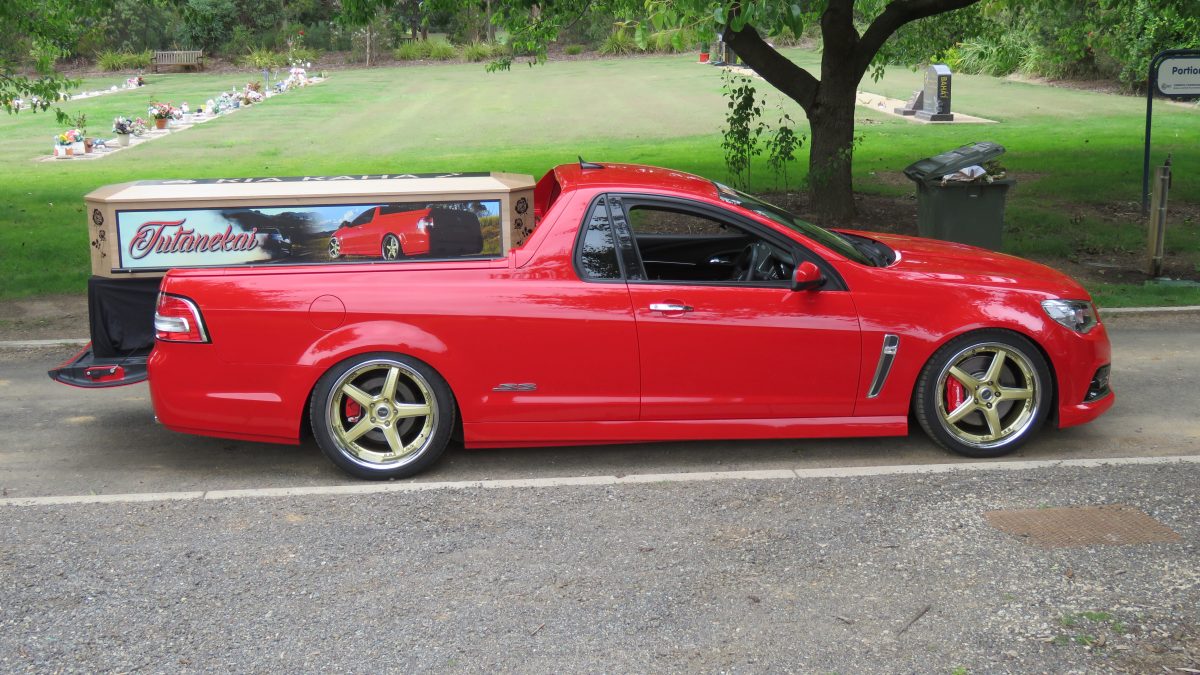
Kai’s car delivered his coffin to the funeral. It bore his Maori name, Tutanekai, which means “man who walks with authority”. Photo: Supplied.
“When you see what other people have gone through, I consider myself well off compared to them … because people don’t get ‘it’. They’ll say, ‘why did you let them take their own life?’, or ‘surely you must have seen it coming?’
“You don’t see it coming,” Jeanette said, but help is needed to ensure it doesn’t happen as often.
“There is generalist support in Canberra, but suicide is so difficult to deal with because of the shame associated with it.
“If I can do something for Kai, for his legacy, it would be to get the issue of suicide out there so that it is not so hidden any more.
“Surely that’s the least I can do.”
If this story has raised concerns for you, contact Lifeline on 13 11 14. If someone is in immediate danger, call 000. Information and support for anxiety, depression and suicide prevention are available through Beyond Blue.












